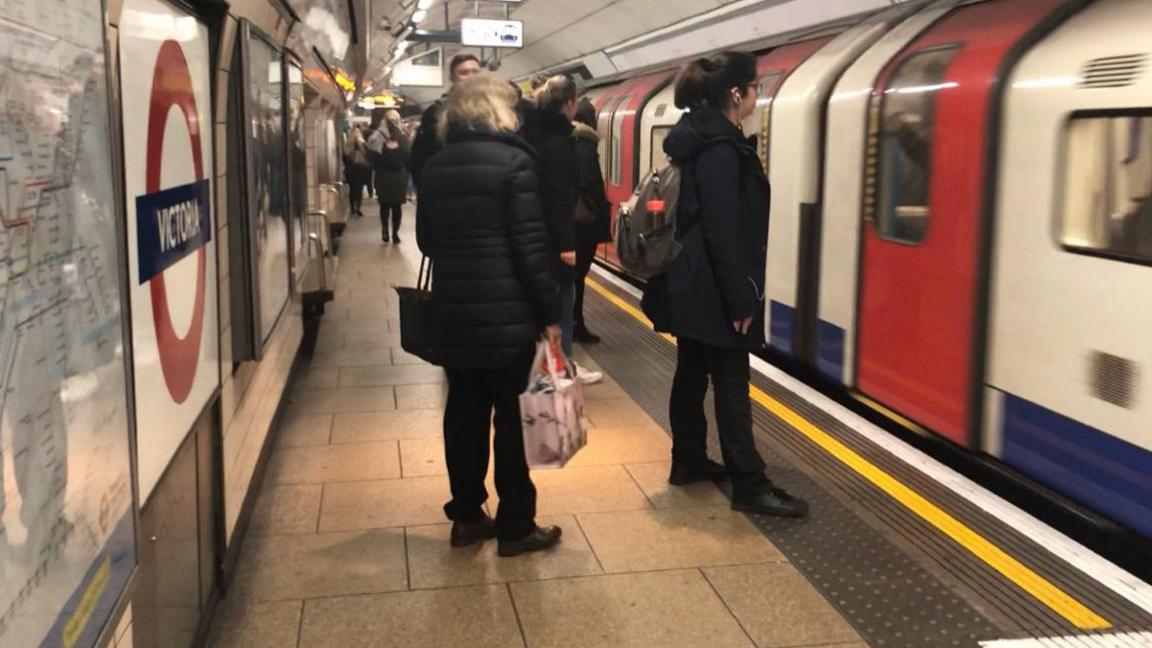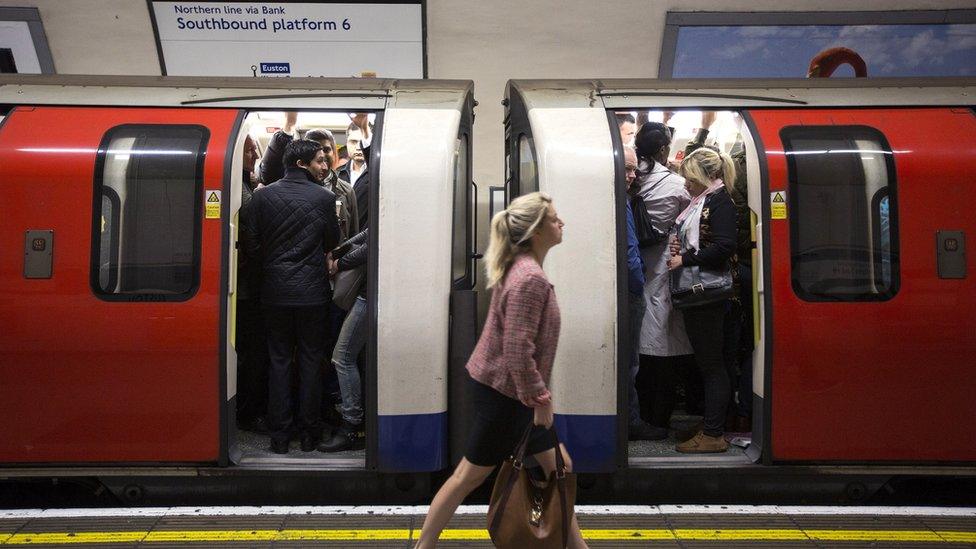Tube drivers plan go-slow action on noise levels

Transport for London said it was working to reduce noise levels on the Victoria line
- Published
Some Tube drivers are planning to reduce the speed of their trains in protest at "extreme noise levels" they say they are exposed to on the Underground.
Members of the RMT union have voted to take the industrial action after noise levels increased in recent weeks.
Slowing down trains by even a small amount is likely to result in a less frequent service and more crowded services at peak times.
Transport for London (TfL) has confirmed the volume of sound experienced by drivers has exceeded the legal limit and said it was working to resolve the issue.
'Extremely uncomfortable'
It said a number of improvements had been made, including removing insulated rail joints, which removes a source of noise, and improving the condition of the tracks.
However, bosses are asking all Victoria line drivers to wear ear defenders while driving until the issue is fully resolved.
The RMT union said current noise levels were "extremely uncomfortable and distressing for drivers".
"The fact that members have voted by a massive majority for action over this matter should alert London Underground to the strength of feeling and act upon in accordingly," RMT general secretary Mick Lynch said.
"If London Underground workers are impacted by these unacceptable noise levels the general public are also being affected by it."
No planned dates for the action have been announced.
Another trade union, Aslef, accused TfL of applying a "band-aid approach to the symptoms", rather than dealing with the root cause of the problem.
Aslef believes the noise issues also extend to the Central, Northern and Jubilee lines and said it would ballot its members for industrial action if they were not resolved.
Tube noise concerns raised by London Assembly
- Published15 May 2023
New data reveals the noisiest sections of the Tube
- Published7 August 2022
Nearly £30m spent on Tube noise cuts over five years
- Published30 July 2024
A TfL spokesperson said: “We regularly measure noise levels across the Tube network, and recent results identified an increase in the level of noise exposure that Victoria line train operators are exposed to during the course of their shift.
“We have plans in place to address this through further improvements to the infrastructure along the Victoria line...We are encouraging our trade unions to work with us to fix this issue, so we can avoid unnecessary and disruptive industrial action that will impact Londoners."
TfL added that noise exposure for passengers did not reach the same level as a train driver experienced.
This action follows previous concerns about noise levels on the Tube. More than 1,300 noise complaints were made between January 2020 and August 2022, according to TfL data.
City Hall data shows almost £30m has been spent over the past five years on reducing noise on the London Underground.
Listen to the best of BBC Radio London on Sounds and follow BBC London on Facebook, external, X, external and Instagram, external. Send your story ideas to hello.bbclondon@bbc.co.uk, external
- Published5 April 2022

- Published29 January 2018
